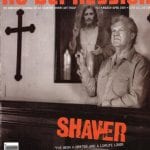Oh Susanna – Dreams to remember
Ungerleider took another shot at music education by enrolling in guitar lessons with a female jazz player, but the results were, again, mixed. “I wanted to be around [the teacher], because I thought musicians were these alien beings. I wanted to know what they were about. They must have had some foreign territory that I had to explore and cultivate.”
Finally, she got up the nerve to actually be a musician at the campus cabaret. She performed a Patsy Cline song, a Johnny Cash number and the Stones’ “Dead Flowers”. She went over well, but waited until the next year’s cabaret before she dared try it again.
During the summer of 1993, she resolved that she could be, would be, a musician, and befriended roots music aficionado Scott Chernoff. They intended to start a band, and although their partnership produced songs that would form part of her early repertoire, they fell out and split. When she finished school, Ungerleider worked at a Vancouver pool hall, a Starbucks, and then as a clerk at the public library, but a friend who knew of her ambitions invited her to perform at a salon night. There, a novice producer named Dan O’Connell invited her to try some ADAT recording, and the summer 1995 sessions harvested a seven-song demo.
Hearing those recordings now, with just the barest hints of rhythm and bottleneck guitar supporting Ungerleider’s rudimentary strumming and unstudied-but-passionate vocals, it’s clear how deeply she had absorbed the ancient sounds she spun on her radio show. The demo is still a startling piece of work. An unsuspecting listener could be convinced it was something Alan Lomax captured during one of his backroads expeditions.
“Tried to walk beside me/I beat you to the ground/I strung those reins around your head/I rode you till you drowned,” she sang on “Shame”, jostling her voice from pure notes into an unsteady backwoods whoop. In “Missoula”, she mined the rich tradition of outlaw balladry, while “All Eyes On Baby” articulated timeless truths about the expectations and limitations imposed on women.
On the tape’s label, O’Connell scribbled “Cowpie”, in honor of Ungerleider’s radio handle. The singer made a copy for her sister, but left the master on a shelf and resumed working at the library.
The story may well have ended there, except her sister sent a copy of the tape to Los Angeles radio station KCRW and Chris Douridas, host of the influential show “Morning Becomes Eclectic”. Douridas played the tape, gave a copy to Geffen Records, and called the organizers of Vancouver’s Music West conference to secure her a showcase.
“When [Douridas] called me, I said, ‘What are you talking about?’,” she recalls. “Here I was, waking up in the morning, going to the library and coming home and thinking, what am I going to do with the rest of my life — and he’s played my music for Geffen?”
She ended up on Music West’s compilation disc and was featured in a publication as one of the country’s hot new talents. Then came a domino effect of unbridled media praise and a flurry of major-label interest. The demo tape was pressed up as an indie CD under the name Oh Susanna. Suddenly, almost in spite of herself, she was hot.
“All these doors opened up and it just started. It was quite incredible. Startling,” she says, still a little bewildered by the whole thing. “It wasn’t exactly a dream come true, because I didn’t trust it. I am so glad it happened, though. It got me to a stage that would have taken me years to get to.”
It’s a good thing Ungerleider’s instinct told her not to trust the early wave of label interest. As bassist Donovan says, buzz vanishes faster than snow in her native Vancouver.
“She had all these people chasing her around, wanting to sign her for about six weeks. Different artists work their whole life to get that moment, and it chased her,” says Donovan, who befriended Ungerleider when she relocated to Toronto. “I think there was a little bit of an ego-bruise….Once the party is over, it is over, and then the work begins.”
Work, in Ungerleider’s case, meant getting out on the road, often with Donovan accompanying her on upright bass. From his perch onstage, he witnessed her become a mesmerizing performer. “You can hear a pin drop when Suzie gets up there,” he says. “There are some people who, when they stand onstage, command a certain amount of attention. When they open their mouth, you are forced to listen. She has that quality.”




